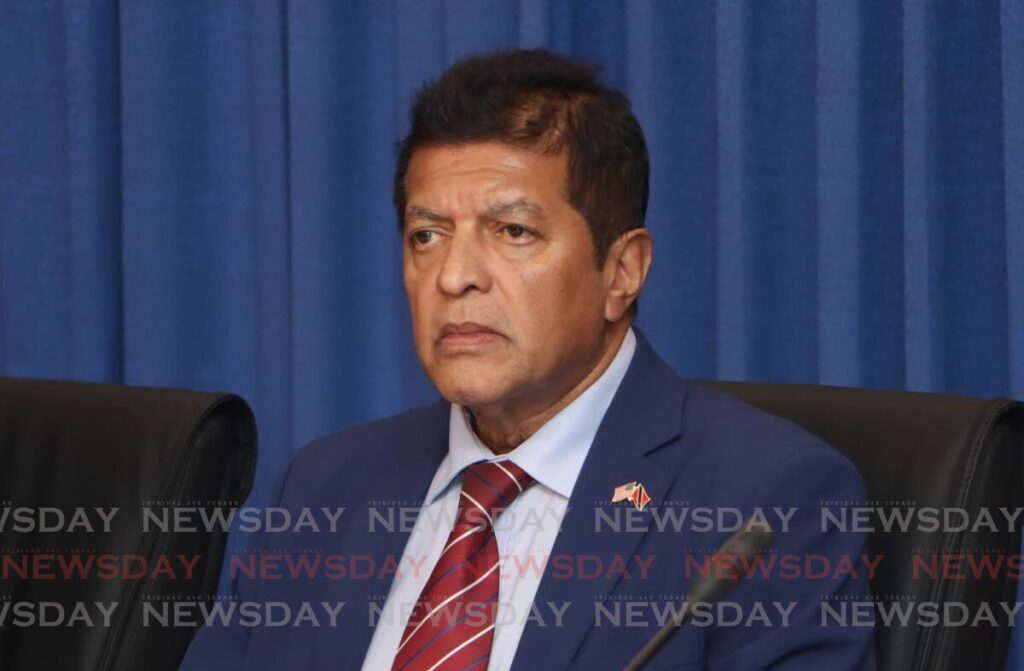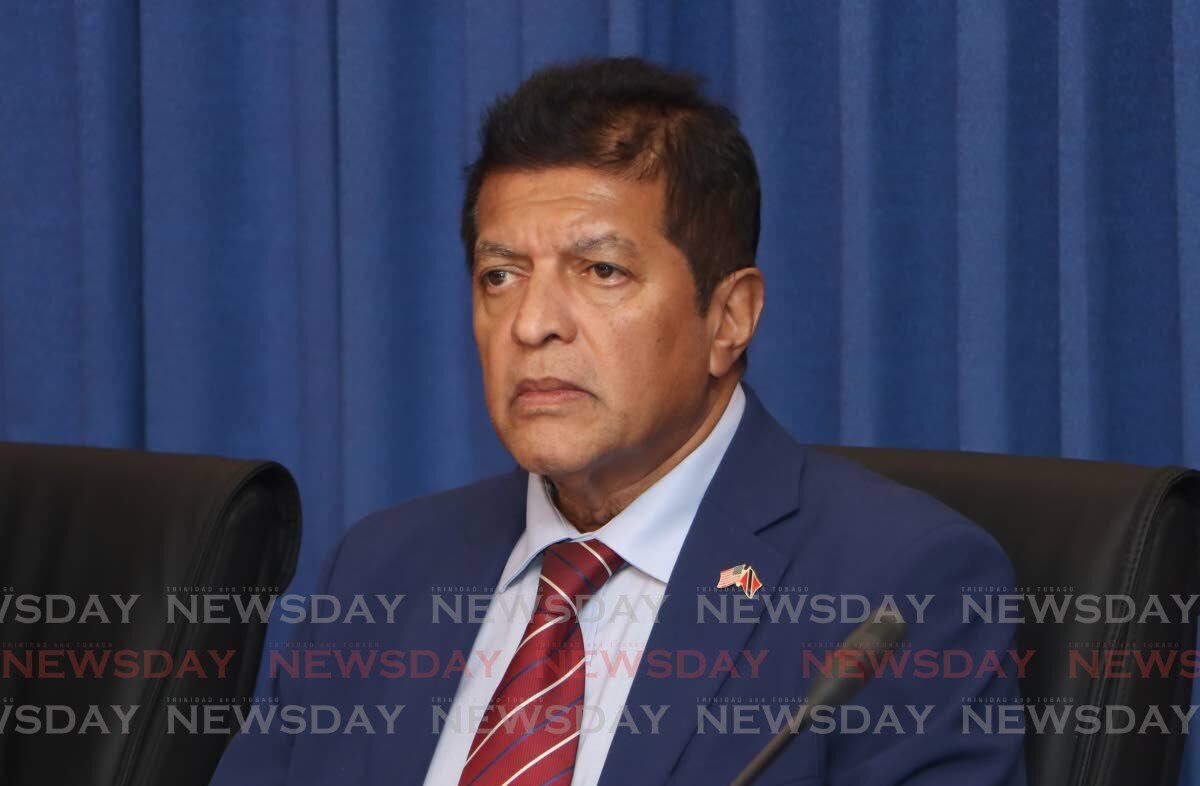19 Hrs Ago
 Minister of Health Dr Lackram Bodoe. – File photo by Angelo Marcelle
Minister of Health Dr Lackram Bodoe. – File photo by Angelo Marcelle
TRINIDAD and Tobago must expand access to pre-exposure prophylaxis (PrEP) and doxycycline prophylaxis (doxy-prep) to combat HIV and rising sexually transmitted infections (STIs), health experts say, warning political, cultural, and religious barriers are slowing progress.
Advocates speaking with Newsday on November 25 argue making these preventive tools widely available is not only a public health necessity but also a cost-effective strategy that empowers individuals to protect themselves.
Dianne Weekes, Coordinator of the National HIV Helpline, described PrEP and doxy-prep as “extremely important” in the fight against HIV and STIs but said previous government approaches failed to prioritise prevention.
“The previous administration’s position failed to consider the preventative and trauma-informed benefits,” she said. “The reality is, whether the medication is available or not, people will still make their own choices, whether to have multiple partners or engage in unprotected sex.”
In 2019, former health minister Terrence Deyalsingh opposed public access to PrEP, citing concerns it would encourage promiscuity. A stance criticised by many as him imposing personal beliefs on public health.
Weekes expressed hope the current administration will pursue comprehensive policy updates.
“It’s a wide field that requires comprehensive reform,”
Her comments follow statements by Tobago House of Assembly Health Secretary Dr Faith Brebnor, who on November 20 urged for PrEP to be included in national HIV/AIDS prevention protocols. Brebnor made the remarks at a UNICEF event addressing rising syphilis cases among pregnant women and broader STI concerns.
At a Pan American Health Organization event on November 18, Dr Adesh Sirjusingh, director of women’s health, reported nearly 200 cases of syphilis among pregnant women in 2025, far exceeding the typical 30–40 cases per year and surpassing the 100 cases reported in 2024.
“Trinidad and Tobago is one of the few countries in the Western Hemisphere where PrEP remains unavailable through public health programmes or on the open market,” Brebnor said. She noted the drug’s widespread use internationally as a preventive tool.
Weekes highlighted the global rise in syphilis and the impact of cuts to US funding for HIV/AIDS programmes, which previously accounted for 75 per cent of international financing. According to UNAIDS, an estimated 2.5 million people have lost access to HIV-prevention medicines, including PrEP, as clinics and community programmes close.
Asked if wider access to both drugs would strain the health system, Weekes said no. “In the long term, it actually reduces strain. It’s about being proactive rather than reactive. Providing as many options as possible, ultimately saving resources.”
CAISO community case worker Rae Alibey echoed Weekes, stressing the importance of prevention tools for reducing stigma and empowering marginalised communities.
“These tools empower people who are HIV-negative to have autonomy over their own sexual safety.”
He stressed prevention should not rely solely on people living with HIV, as the risk of transmission does not rest solely on their shoulders. Alibey noted accessibility remains a major issue.
“The drugs exist but are not widely available to the public. It is not accessible over the counter, and obtaining it through a doctor can be difficult. Doxy-prep is sometimes given to medical professionals or sexual assault victims. Most people don’t know these options exist.”
He called on Health Minister Dr Lackram Bodoe to foster open, intelligence-led discussions and comprehensive sex education in schools, saying it is the only step forward.
“If people learn how to navigate these issues early, they are less likely to face harm.”
He urged conversations, led by the Ministry of Health, based on reality and evidence, not conservative rhetoric for political mileage. He said people must understand the risks, the options, and the resources available.
Alibey said responsible conversations should include self-testing for HIV, understanding the correlation between syphilis and HIV, and awareness of additional layers of protection.
Kimberly Springer, an advocate for women and girls living with HIV in Trinidad and Tobago, highlighted how conservative societal attitudes hinder both access and national conversation.
“We are a very pretentious, conservative country. We don’t want to admit young people are having sex. We don’t want to acknowledge the LGBTQ community.”
Springer pointed to gaps in sexual and reproductive health education, noting shortcomings in the Health and Family Life Education curriculum, which limits discussion on HIV and sexual health in schools.
Springer discussed socio-economic vulnerabilities affecting women. She said, Globally, 53 per cent of new HIV infections occur in women and girls, and in Trinidad and Tobago, the situation is no different.
“The Cepep programme employed many women. Some of them may now be in positions where they cannot afford basic necessities, pushing them into risky behaviours and financial dependence on partners. We cannot ignore this reality.”
She stressed the need for both preventive drugs and long-acting treatments that are available internationally. Springer said women’s health is more than gynaecological check-ups or breastfeeding.
“It includes sexual and reproductive health, HIV prevention, and overall well-being. Introducing effective drugs and preventive programmes will reduce the long-term cost of treatment and care by lowering new HIV infections.”
She concluded that addressing HIV and STIs in the country requires more than a medical response.
“We need integrated approaches to tackle it effectively.”
She said expanding access to both drugs, updating sex education, and fostering evidence-based national conversations are critical steps in controlling transmission rates. Failure to act, she warns, could see preventable infections rise further, compounding social and economic challenges.
Newsday reached out to the health minister, who said he would provide a response at a later time.

